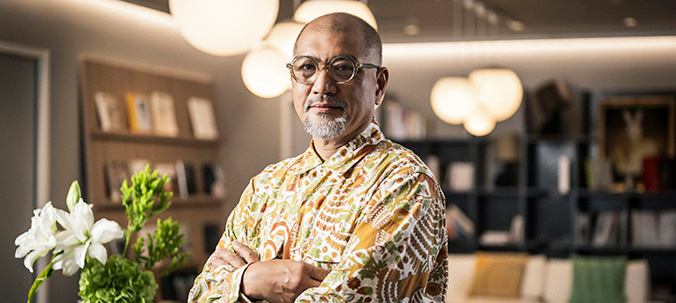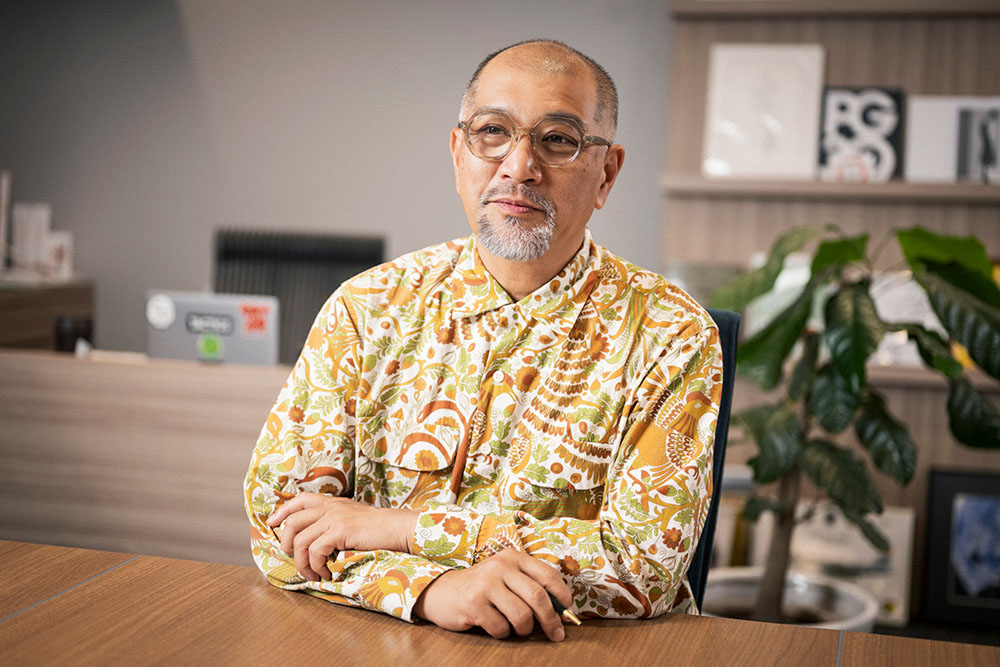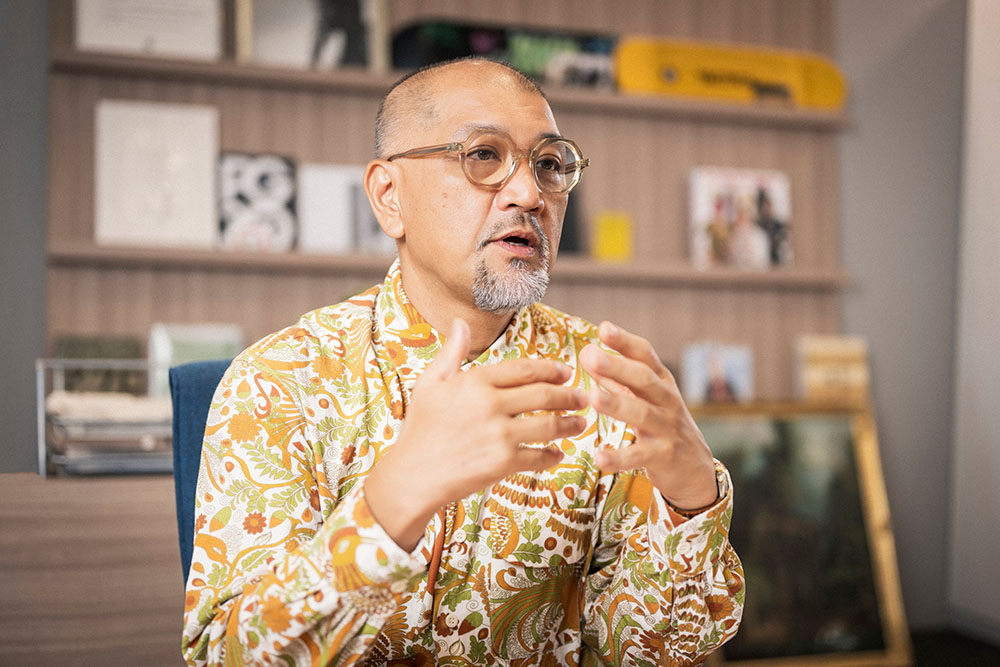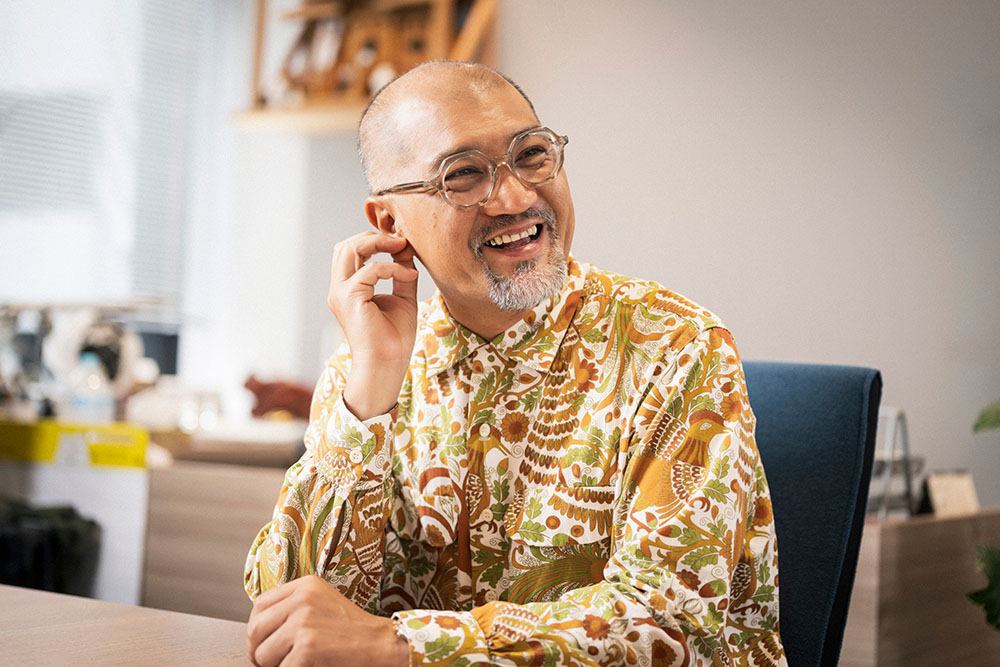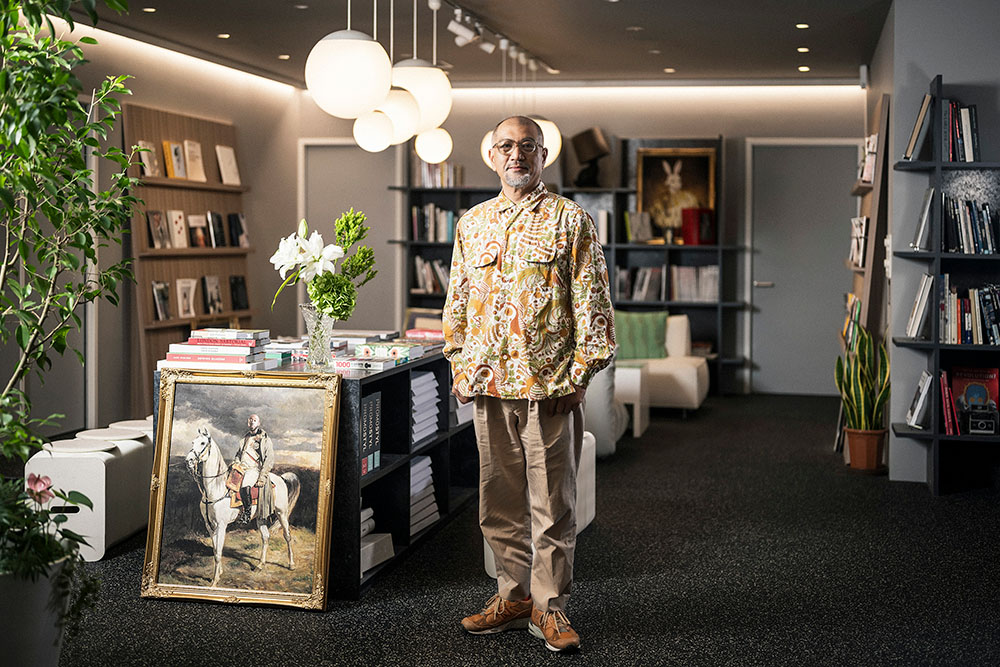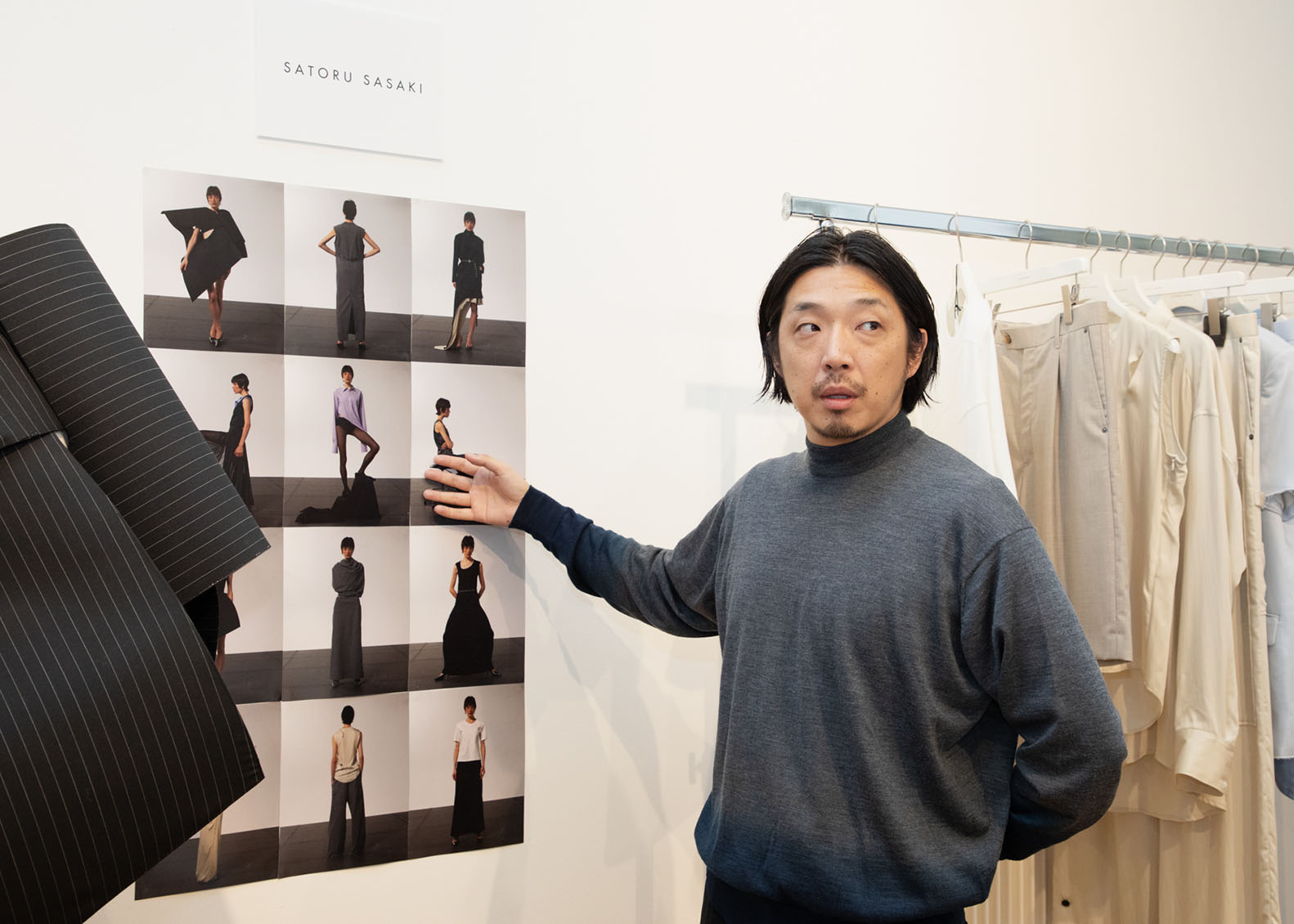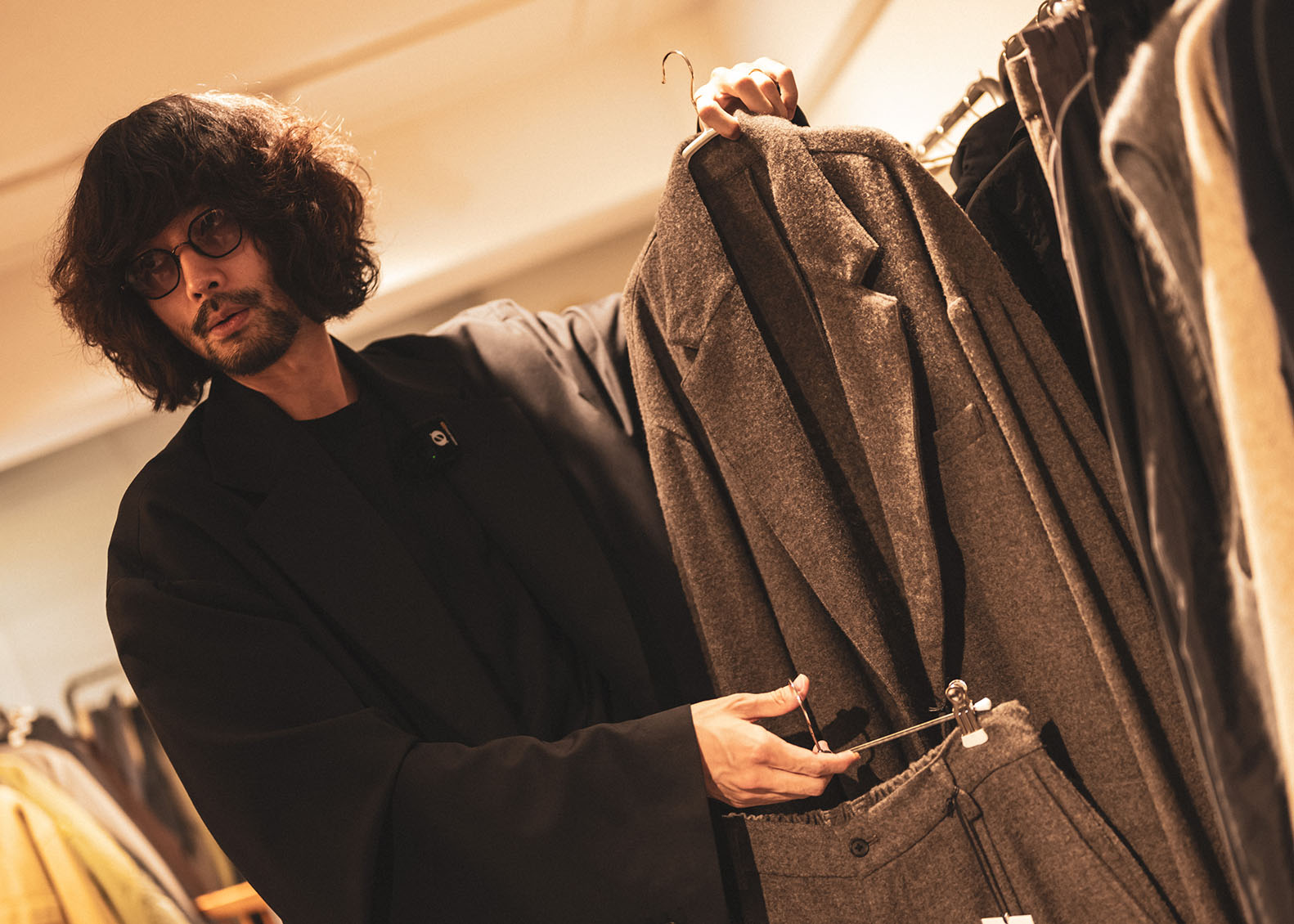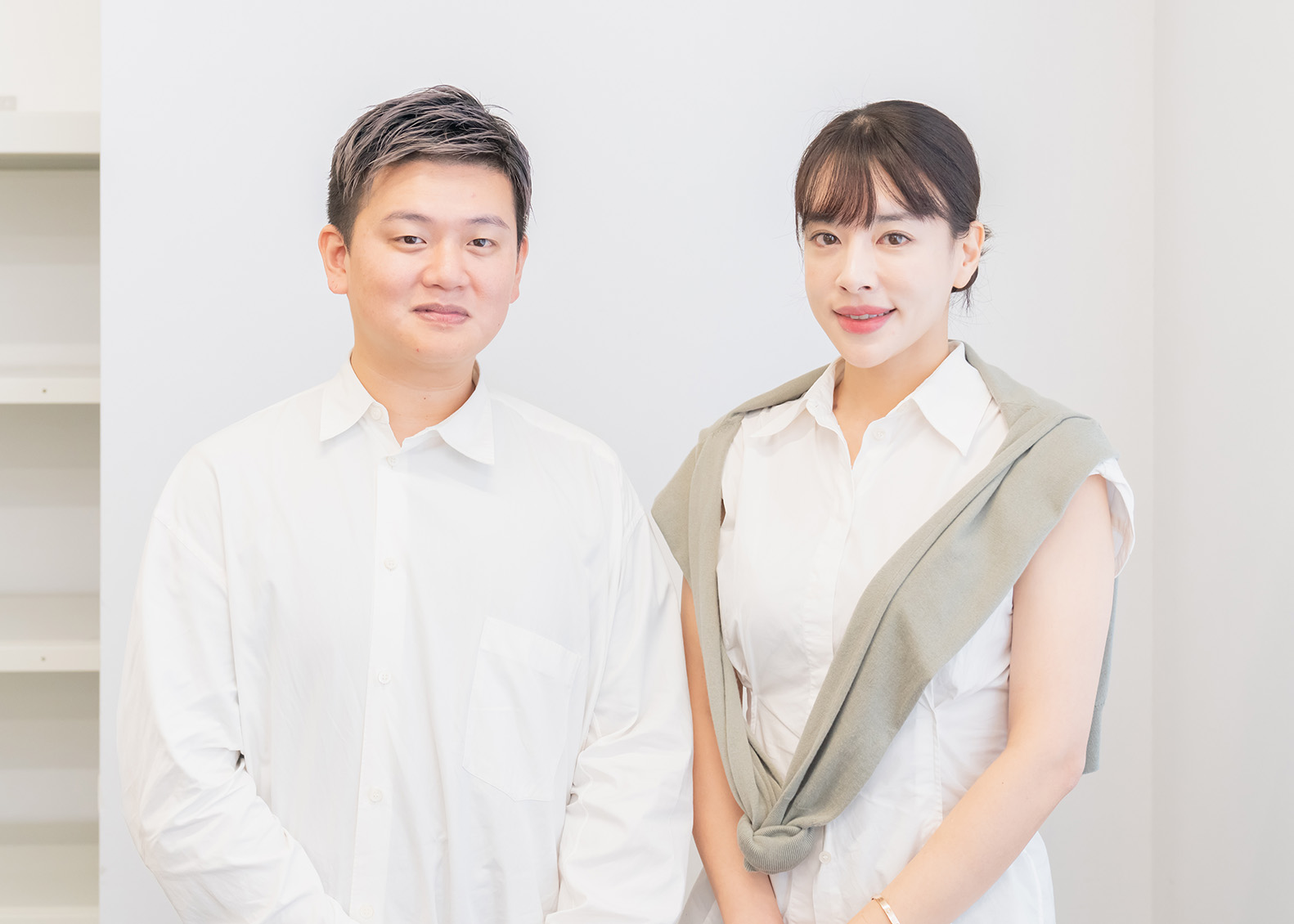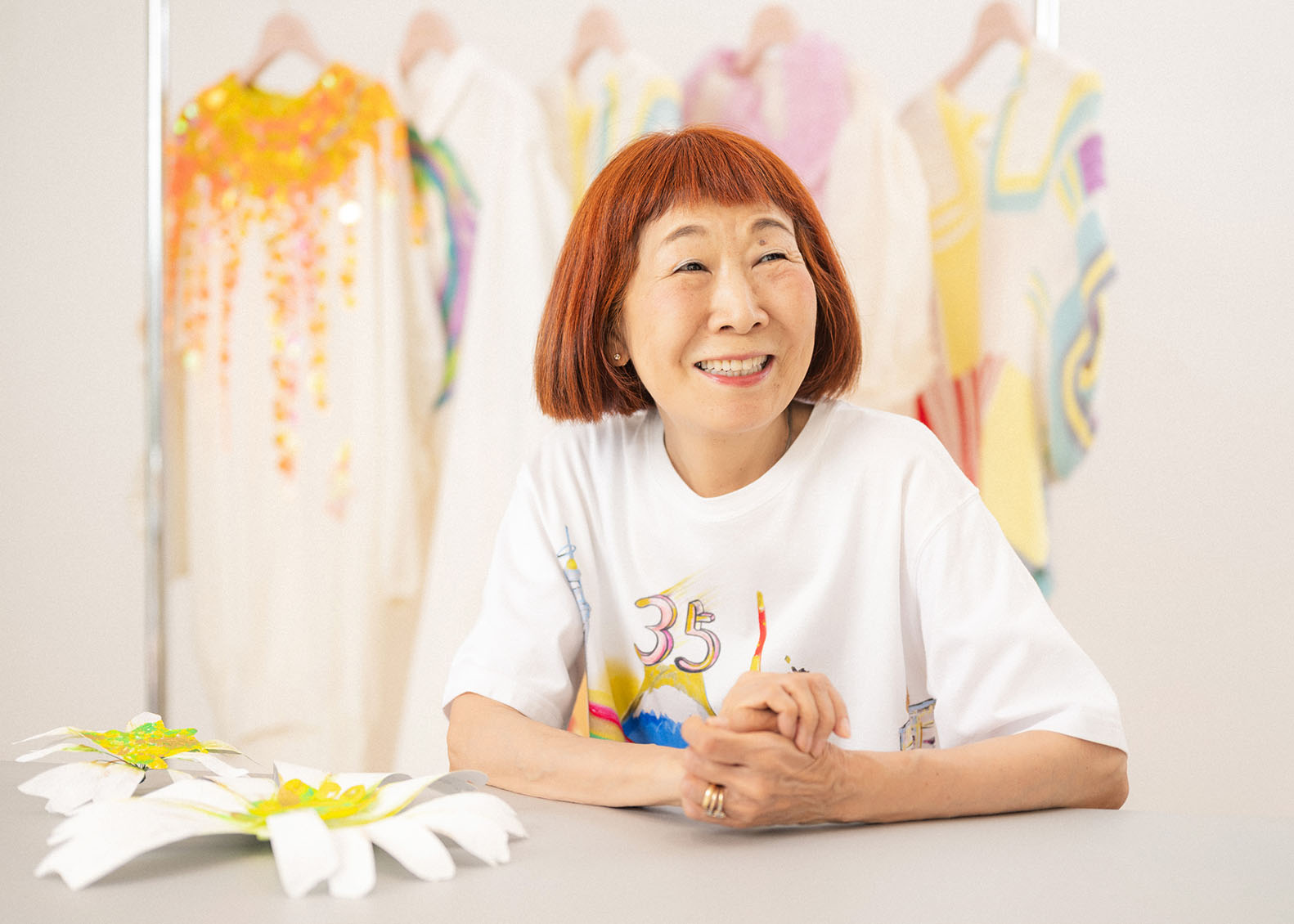Tsuyoshi Shimoji
In June of this year, Tsuyoshi Shimoji, president and CEO of TSI Holdings Co., Ltd., was appointed the new board chairperson of the Japan Fashion Week Organization. Shimoji, with his unusual background as a designer-turned-executive, brings a fresh perspective to the role previously held by Masahiko Miyake.
In this interview, Shimoji, who has expressed his “firm belief in the power of fashion,” shares his vision for the future of Rakuten Fashion Week TOKYO.
As the newly appointed board chairperson of JFWO, what is your vision for Fashion Week?
Through Rakuten Fashion Week TOKYO, I aim to nurture and promote the top fashion brands of Asia. While continuing to raise global recognition of Tokyo Fashion Week, we also plan to enhance our programming to further engage fashion lovers here in Japan.
Throughout my career, I’ve drawn from my experience in the apparel industry to support and promote brands that have gone on to the global stage. As I approach my 60th birthday, I’m deeply honored to take on the role of board chairperson at this pivotal moment in my life.
These questions are inspired by the three slogans of Rakuten Fashion Week TOKYO. The first slogan is “to become the gateway for success in the world for new designers.” How do you perceive Rakuten Fashion Week TOKYO’s international standing over the past few years?
I believe the first Fashion Week in Tokyo took place sometime when I was in secondary school. Although several decades have passed since then, there are still only a handful of brands that have participated in Fashion Week here and gone on to achieve global success.
If we are to call ourselves a gateway, we must continue to offer fresh and exciting experiences for our audience while also maintaining the high standard of quality necessary to compete on the global stage. At the same time, we need to establish a system for nurturing promising brands. It is essential that we continue to evolve so that young designers view this event with admiration and dream of participating someday.
The next question concerns the second slogan, “to become the starting point for cooperation between designers, manufacturers, and apparel producers.” Past editions of Fashion Week have included joint events with large-scale trade shows and collaborations with regional producers. How do you see these collaborations evolving in the future?
Looking at various fashion weeks as a whole, I feel that there is a growing global recognition and involvement in joint trade shows and related events beyond the runway. This season, TRANOÏ, a trade show that takes place during Paris Fashion Week, will be held in Japan for the first time. I’m very excited about having a space where brands, buyers, media, and consumers can connect, as this is an essential element of Fashion Week here in Tokyo.
As for further developments, one idea is for collaborations between these trade shows and educational institutions like fashion schools. For instance, by interning at these events and participating in the actual work, students would have opportunities to communicate with industry professionals. On our end, we could discover and nurture the next generation of talent. I hope to establish such a system through the events at Fashion Week and see it expand globally, perhaps in Asia or Europe.
The third slogan, “Make Tokyo more fashionable and enjoyable,” is the one most directly related to consumers. Last year, some programming was opened up to public participation with the aim of creating a more “open” Fashion Week. As someone with broad experience in the fashion industry—as a designer, executive, and more—what does a “fashionable and enjoyable” city mean to you?
Personally, I already see Tokyo as a fashionable and enjoyable city. Nowhere else in the world do you find such a wide variety of unique fashion overflowing in the streets. In addition to Harajuku and Shibuya, Shimokitazawa has become a hub for young people who love fashion.
The quality might sometimes be hit or miss, but the low barriers to entry in the Japanese apparel industry make it a relatively easy environment for new creations to emerge. Especially in recent years, I’ve seen more chances being taken on fresh ideas and the younger generation. I want to help create a Tokyo that supports talent and encourages risk-taking. If we can do that, I’m confident the city will become even more fashionable and enjoyable.
You also have experience as a designer. From a designer’s perspective, what do you find appealing about Rakuten Fashion Week TOKYO?
I would love to present a collection myself (laughs). I have experience as a designer of a menswear brand, but I don’t think there is any greater achievement in the fashion industry than succeeding as a brand on the runway. The runway is a crucial stage we must never lose. The industry needs to come together to keep it shining as a place of dreams and inspiration.
I first became interested in this industry when I saw Kenzo Takada in the magazine anan. I was a bit star-struck, thinking, “I want to live a life like that!” That’s why I enrolled in Bunka Fashion College, just like Takada, and became a designer (laughs). Since entering this world, I’ve faced challenges, but I wasn’t wrong about it being an industry filled with allure, glamour, and fun.
Just as trends and movements once emerged spontaneously on the streets of Harajuku and Shibuya, Fashion Week has the potential to do the same. When fashionable young people crowd around the venue to see shows, energy builds and eventually explodes as culture. That is where the stars of the next generation are born.
What do you see as the most important factor in energizing and stimulating the fashion industry through Rakuten Fashion Week TOKYO?
We already have the support of many companies and local governments, but to make Rakuten Fashion Week TOKYO more familiar to consumers, we need to further involve apparel companies like TSI Holdings and the media.
TSI Holdings operates over 800 stores worldwide and even something as simple as displaying posters in the stores during Fashion Week could help raise awareness. Since Rakuten Fashion Week TOKYO takes place twice a year, I think it would be wonderful if people came to look forward to it as a seasonal event, the way they do a fireworks festival. Moreover, if we can invite more media from outlets beyond just industry magazines and promote the event through various channels, I believe the entertainment value will rise, creating a significant wave of interest.
Rakuten Fashion Week TOKYO 2025 S/S is about to begin. Could you share a message for those planning to attend the shows and events?
The passion and excitement of those in the fashion industry are contagious, reaching general consumers too. I aim to create an environment where industry professionals are captivated and inspired, a place where people dream of showing their work.
I hope to make this Fashion Week one where participating designers can proudly and confidently say, “I was part of Rakuten Fashion Week TOKYO.” With many wonderful brands participating, I would be delighted if you could bring passion and respect to the shows.
Interview by Azu Satoh
Photography by Daichi Saito
[ Website ] https://www.tsi-holdings.com/

